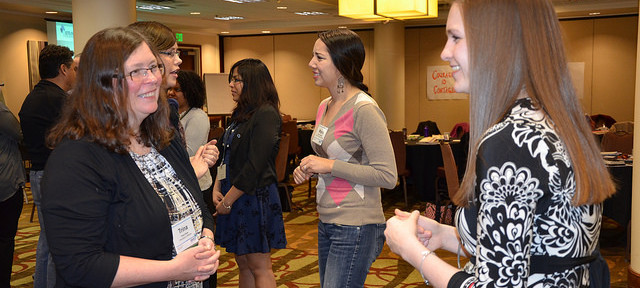 Convention is finally here! It’s time to plan your Convention schedule being sure to include some fun time!
Convention is finally here! It’s time to plan your Convention schedule being sure to include some fun time!
To help with that, here are some interesting programs that APAGS is offering, both at the Convention Center and in the APAGS Suite (located at the Fairmont Royal York Hotel):
Thursday, August 6
Student Led Resistance: Mobilizing for Social Justice Post #Ferguson
10-11:50 a.m., APAGS Suite
Following Ferguson, we have a discussion around how students can mobilize around social justice and get involved.
Friday, August 7
Hands on Stats: A Guide to Basic Statistical Analysis
1-2:50 p.m., APAGS Suite
The stats training was a hugely successful and popular session last year, so we brought it back with more information that you may not learn in graduate school.
Friday, August 7
Student Town Hall
2-250 p.m., Convention Centre
Come join fellow students and APAGS leaders for a difficult dialogue to discuss student reactions to the APA investigation (the Hoffman Report) and potential action steps that students should take.
Friday, August 7
Financial Literacy for Students and Recent Graduates
4-5:50 p.m., Convention Centre
Money seems to always be an issue for graduate students and early career psychologists. Here we discuss tips and strategies on overcoming debt.
Saturday, August 8
Alternative Career Paths with a Doctorate in Psychology
9-10:50 a.m., Convention Centre
Another successful symposium last year, this year we have extended it to 2 hours and brought in psychologists from Google, National Academy of Sciences, California State Legislature, and also an International Mental Health Program Evaluation expert.
Saturday, August 8
Non-Traditional Students and Graduate School: Shared Experiences, Personal Challenges, and Open Discussion
11-11:50 a.m., Convention Centre
You asked, we deliver. We received many requests for a discussion on issues that non-traditional students face, and here it is!
And of course, how could we forget our Internship Series:
Friday, August 7
Internship Workshop
8-9:50 a.m., Convention Centre
This popular reoccurring workshop is for students applying for internship. Tips and strategies are provided on writing essays and managing the stressful application process.
Saturday, August 8
Meet and Greet with Internship Training Directors
1-1:50 p.m., Convention Centre
Meet with various Internship Training Directors to find out what makes an attractive internship candidate!
Saturday, August 8
Conversation Hour with APPIC
4-4:50 p.m., APAGS Suite
If you have any questions about the APPIC and the application process, here would be the place to ask!
Don’t forget about having fun at Convention! APAGS offers social events to help students relax and network after long days of Convention. If you are going to Convention alone and would like to meet up with other students, we have a platform for doing that just before our social hour, called Flying Solo. This will be held at the APAGS Suite on Thursday, August 6. After the flying solo event, people usually form groups to get to the APAGS Social together.
The APAGS Social this year will be held at Malaparte, which is a short 6-minute walk from the Convention Centre, or 15 minute walk from the Fairmont Royal York Hotel. Don’t forget the date and time, which will be on Thursday, August 6, from 6p.m.-8p.m.
With all these interesting programs, it’s hard not to get excited for Convention itself! If you need more help, don’t forget to check out the Convention Survival Guide.
See you at Convention!



 One of the best reasons to go to
One of the best reasons to go to 










 What is a mentor?
What is a mentor?